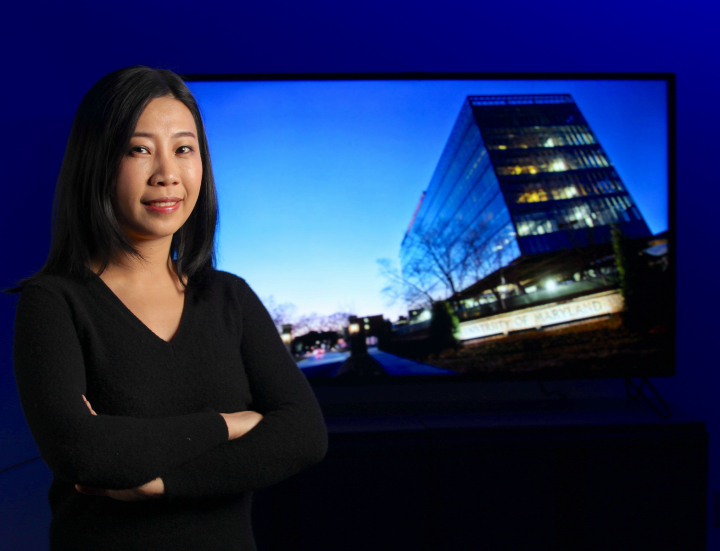Huang Named to Prestigious List of 35 Innovators Under 35
A University of Maryland expert in machine learning and artificial intelligence (AI) has been selected for MIT Technology Review’s Asia Pacific “Innovators Under 35,”an annual list recognizing 35 of the brightest young minds working in technology today.
Furong Huang, an assistant professor in the Department of Computer Science with an appointment in the University of Maryland Institute for Advanced Computer Studies (UMIACS), was among the 35 entrepreneurs, humanitarians, inventors, and researchers honored for their groundbreaking work in biotech, AI, materials science, energy, computing and quantum.
Huang was specifically noted as a visionary for her work in making AI more trustworthy, and developing models that can perform tasks safely and efficiently in unseen environments without human oversight.
“I’m extremely honored and grateful to be selected for this award,” says Huang. “I would like to use this opportunity to thank all my collaborators who consistently inspire me, mentors who encourage and support me unconditionally, students who put their trust in me, and family and friends who care for me and support my career.”
Much of her work involves developing robust models that can augment or amplify AI to make safe and efficient decisions in everyday situations. For example, her AI models learn patterns from data sets like driving records to help autonomous vehicles better interpret road signs in severe weather or even under adversarial perturbations.
As part of this work, Huang has made fundamental contributions to non-convex optimization—a core tool used in deep learning. She and her collaborators are the first to prove that first-order gradient information, which is efficient to compute, guarantees convergence to locally optimal solutions for non-convex optimization. This pioneering work on non-convex optimization laid the theoretical foundations for optimization in deep learning and sparked a surge of subsequent works.
Her work on transfer learning expedites autonomous decision-making systems in dynamically changing environments with a theoretically guaranteed improvement of state-of-the-art effectiveness and efficiency. This research provides the first method to allow knowledge transfer across drastically different observation spaces, like from a patrol robot with GPS sensors to a patrol robot with cameras.
Looking forward, Huang hopes to advance spectral methods to design novel deep neural network architectures that guarantee interoperability, fairness, privacy, and robustness even before the start of the training process.
She is currently leading a team of researchers focused on improving fairness and trust in AI used in the college admissions process. That project is supported by a $1 million joint research award between the National Science Foundation and Amazon.
Huang has been at the University of Maryland since 2017 and is a core faculty member in the University of Maryland Center for Machine Learning. She earned her doctorate in electrical and computer engineering from the University of California, Irvine in 2016.
Please find the video of her work here.
—Story by Maria Herd, UMIACS communications group
The Department welcomes comments, suggestions and corrections. Send email to editor [-at-] cs [dot] umd [dot] edu.
